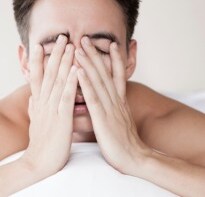While sleep disorders have become one of the most common lifestyle concerns, a new research suggests that one in every seven people may be suffering with something called sleep drunkenness.
With inputs from IANS
Advertisement
With inputs from IANS
Advertisement
For the latest food news, health tips and recipes, like us on Facebook or follow us on Twitter and YouTube.
Advertisement
